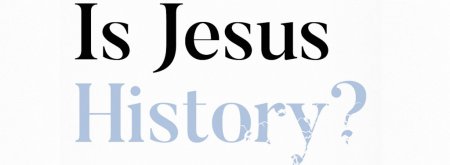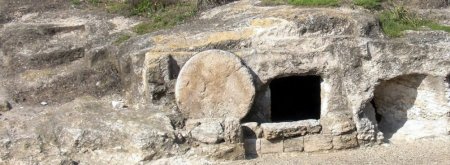Is Jesus History?
Christians make all sorts of claims about the life of Jesus, but what does history say?
 Historians have played a key role in investigating the life of Jesus, because the ‘alleged events all take place in a cultural melting pot – Roman Galilee and Judaea – for which we have thousands of archaeological remains and hundreds of thousands of words of ancient inscriptions and written records’ (8).
Historians have played a key role in investigating the life of Jesus, because the ‘alleged events all take place in a cultural melting pot – Roman Galilee and Judaea – for which we have thousands of archaeological remains and hundreds of thousands of words of ancient inscriptions and written records’ (8).
Is Jesus History? by Professor John Dickson explores how the life of Jesus and the claims of the Bible intersect with sources from the ancient world and shows how the person has Jesus has been explored throughout history. Dickson has taught at the University of Sydney focussing especially on the historical Jesus, which enables him to explore the subject in a way that is both academic and accessible. Whether you’re a history buff or haven’t studied history since your early teens, this book is a helpful start in understanding the historical perspectives on the life of Jesus and why we can trust the Bible.
The sources
Dickson defines historical investigation as ‘the science and art of discerning how much of those tangible events of the past can be known today’ (20). He begins by exploring the link between faith and history, presenting human testimony as something we trust to help us learn about the past.
Dickson shows that we need to measure the Bible in the same way we evaluate other sources
He then explores different historical approaches to the life of Jesus before defending the historical reliability of the Bible and what it shows us of the life of Jesus, by comparing it with several sources outside of the Bible. He presents the New Testament accounts as reliable sources because of ‘the sheer number of ancient and medieval manuscripts in our possession’ (81) and how close to the events they were composed. Beyond simply investigating the historical reliability of claims about Jesus’ life, Is Jesus History? also examines the history of the resurrection of Jesus Christ. Dickson does not just explain why historians have come to different conclusions about Jesus but shows their methodology behind this and invites the reader into the discipline of history.
The book ends where it began, considering how part of history is trusting human testimony and what effect our presuppositions and worldviews have on how we evaluate the sources. While an understanding of the historical sources of Jesus’ life, death and resurrection is important, Dickson concludes that what ‘we do with the evidence for the resurrection involves those background beliefs about the universe, our life experience, our preferences and much more’ (144).
More than history
This book is especially good at showing how investigating the life of Jesus, or any person or event, involves more than just history. But the way Dickson considers and examines selected sources is most useful as a starting point for someone beginning to explore the history of Jesus.
Dickson provides a helpful basis for how we read history and how we can accept that Jesus lived, with a focus on the overwhelming consensus of academia that this is the case, but more citations of Jesus’ life in historical sources and writings would help give weight to this argument. He does include several suggestions of further reading that may be better suited to a history student than this book itself.
He also begins with a strong defence of why we need faith in history and how we trust sources, which is perhaps not as widely held a view as this book implies. It effectively shows that we need to measure the Bible in the same way we evaluate other sources, not holding it to a higher account. However, the concept of ‘trust’ is a simplification of historical analysis which makes the book more accessible but may make historians reading this slightly uneasy.
a great book for anyone sceptical about the life of Jesus
As someone with very little background in ancient history, I thoroughly enjoyed Dickson’s overview of the period in which Jesus lived and how the surviving sources, including the New Testament, give us a basis for trusting that Jesus really existed. I personally valued his critique on proving a negative: ‘History is too random and fragmentary for us to make firm judgements on the basis or limited evidence about what possibly did not exist’ (121). Instead, Dickson invites readers to investigate the sources for themselves because we ‘have the kind of historical evidence a resurrection would leave behind’ (143).
This would be a great book for someone who is sceptical of whether the life of Jesus in the Bible is true, or for those seeking to answer questions about this but aren’t particularly confident in where to start considering the question ‘Is Jesus history?’
John Dickson, Is Jesus History? (The Good Book Company, 2019), 160pp



